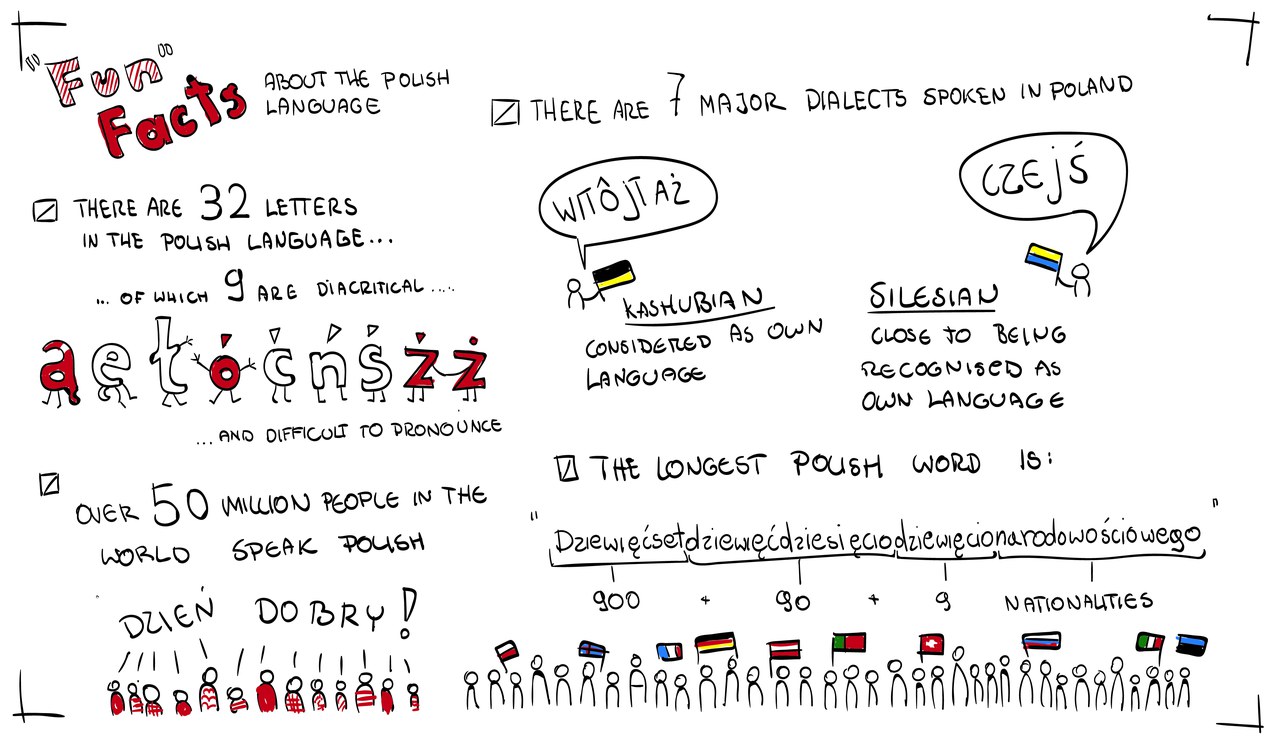POLAND
„ZABYTEK “– means “monument” in Polish and is the word which the professor of our conservation classe tried to teach the foreign students, claiming, by the way, that English is a very “unchristian” language and Polish sounds more beautiful and precise.
For me as a person speaking multiple languages, its hard to judge which of them, I would prefer. The only thing that I can say is that Polish is a challenging language. For some more difficult, for some less, for me as a (somehow) native speaker, but grown up abroad, more tough than I would have expected.
I have chosen Poland for my stay abroad partly because of improving the language – both in speaking and writing. Being surrounded by people who speak Polish, reading and consuming the media around and contributing to discussions in Polish (sometimes even on a high academic level) surely helps in upgrading my language skills. Still there are some issues I have encountered while speaking Polish:
Twisting one’s tongues during regular conversations:
Its not surprising for me that foreigners have often a hard time to pronounce Polish words. Even for me it is sometimes a struggle to do that. Many basic words sound like tongue twisters, seemingly impossible to pronounce the right way if you have not spoken the language for years. I have encountered many situations while speaking with my friends and lectures in Polish that I have mispronounced some exprtessions, confused the letters or simply forgot how to spell the words.
Loosing vocabulary:
Every language has a rich vocabulary, full of different synonyms. The same is true for Polish. Recalling all the right words during a converstaion is not possible for me yet. I have a certain thing in mind, I know how it is called in German or English, but the translation into Polish is missing. Thanks to my colleagues who understand English and to various online translators, I can manage. Otherwise I would still struggle to find the Polish word for craftmanship; (by the way, its “rzemieślnictwo”).
Speaking too fast:
The difference in languages is not only defined by the vocabulary but also by the pace the language is spoken. The Poles speak fast, at least for me it seems faster than the way English or German is spoken. Suddenly speaking more Polish than I was used to makes me talk faster in other languages as well. This led to some difficulties when pepople could not follow up what I said.
Making a “language-salad”:
I believe this is a problem everybody encounters who speaks different languages. You mistake words because you must constantly switch in between the languages. At some point I start a sentence in Polish but want to continue in another language because its easier for my mind to remember the words. Conversations with my friends who speak both, Polish and English, sometimes are held in both languages. However, the most important thing is that we understand each other.
Despite all the difficulties associated with speaking more than one language, I am happy to be multilingual. In my case its pure luck to be able to speak these languages, but for other people, who learn additional languages, it’s a remarkable achievement to be fluent in more than one .
For me it is very inspiring to see people, in this case my colleagues from other countries who try and teach themselves to speak Polish. And they do it great and successfully !
For anybody, who wants to try speaking Polish, here are some tongue twisters for you:
- „Stół z powyłamywanymi nogami”
- „Przeleciały trzy pstre przepiórzyce przez trzy pstre kamienice”
- „Czy rak trzyma w szczypcach strzęp szczawiu czy trzy części trzciny”
- „Wyindywidualizowaliśmy się z rozentuzjazmowanego tłumu”
- „Na wyścigu wyścigowym wyścigówka wyścigowa wyścignęła wyścigówkę wyścigową numer sześć”
Good Luck!
Ewelina Langer
